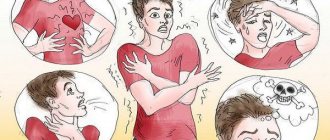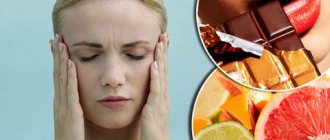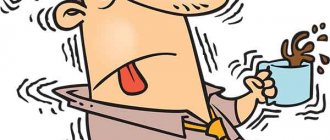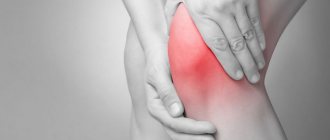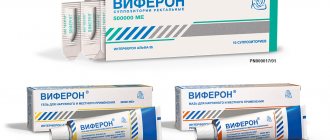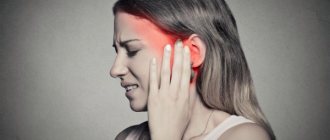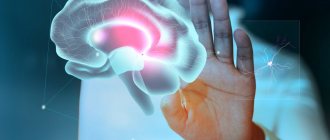How pressure reacts to anxiety
Stressful situations happen in everyone's life. With increased stimulation, the body immediately begins to react, which is manifested by a number of symptoms. Everyone reacts differently to events, and under the same circumstances, one person may be very worried, while another may not show signs of nervous tension.
Can blood pressure increase due to anxiety? Every doctor will answer this question in the affirmative. Stressful situations are considered one of the most common causes of high blood pressure. Even the slightest increase in anxiety in people with unstable mental health can cause a slight deviation. Blood pressure increases in the following situations:
- during public speaking;
- in the process of waiting for events that are important for a given person;
- in communication with strangers;
- conflicts;
- stressful situations.
Deviation from the norm can be determined by the heart rate, which at this moment becomes rapid. An increase in pressure due to excitement is often accompanied by clear symptoms in the form of sweating, redness of the skin, nausea, and a person is often bothered by headaches.
A situation is considered normal when such a phenomenon is observed during a period of nervous excitement, and the indicators return to normal after eliminating the causes of anxiety, calming the person.
Otherwise, you need to worry and consult a doctor to prescribe a course of treatment, since a deviation of up to 10 points indicates a negative impact on all vital systems.
Symptoms
At the initial stages of development of nervous hypertension, characteristic symptoms are usually absent. Only sometimes, when a person begins to get nervous, does his blood pressure rise.
Signs of pathology become noticeable when it begins to progress or becomes advanced.
At first, a person may experience constant fatigue, a desire to sleep, and experience frequent emotional breakdowns. Gradually, such symptoms become permanent, and additional manifestations of the disease join them.
Pressure during stress may be accompanied by the development of a certain clinical picture. These include:
- numbness of the fingers of the upper and lower extremities;
- nausea that ends with vomiting;
- increased sweating;
- constant feeling of anxiety;
- formation of spots before the eyes;
- decreased performance;
- headaches and dizziness;
- sensation of pulsation in the temples;
- swelling of tissues (especially in the face);
- frequent pressure surges.
If such symptoms appear, it is necessary to measure blood pressure. If its levels are high, you should not constantly take medications. A situation is considered dangerous when the slightest disturbance causes blood pressure to rise.
After visiting a doctor, you may need to take strong medications and use other methods of therapy.
The impact of stressful situations and nervous excitability on blood pressure
Increased blood pressure during stress is easily explained from a physiological point of view. The body perceives the situation as dangerous, and immediate action must be taken. During periods of anxiety and at times of strong feelings, hormonal levels change, nerve impulses in the brain indicate the need to speed up the work of the heart muscle in order to speed up blood flow. A sharp increase in hormonal activity increases heart rate, narrows the lumen of the arteries, and reduces the elasticity of their walls, which contributes to increased blood pressure.
When a person cannot control their nerves, the effects on the blood vessels and heart remain constant, further aggravating the situation. Provoking factors are smoking and drinking alcohol, constant lack of sleep, which increases the negative impact and stress.
The danger is that if a person is constantly in a state of stress, then the work of all organs is imposed on him, literally consuming them.
The nervous system cannot return to normal on its own, so medications are often required.
Quick methods to lower blood pressure
Stress and pressure are closely interrelated, so you should know how to provide first aid to a patient:
- you need to sit comfortably in a chair or chair and relax as much as possible, which will normalize your heart rate;
- put your feet in warm water, adding some herbs to it;
- if pain in the heart area persists, you should take a nitroglycerin tablet;
- you are allowed to use pharmaceutical mustard plasters to keep your feet warm, but the procedure must be carried out strictly according to the instructions;
- Before the ambulance arrives, drink Corvalol or Corvaltab according to the indicated dosage.
If your blood pressure is too high, you must call an ambulance before administering first aid. It is forbidden to get rid of a crisis on your own, as this can further worsen the condition and cause the development of dangerous complications.
Nervous hypertension
Increased pressure on the nerves is a separate category of causes of pathological changes. According to statistics, 68% of cases of hypertension develop against a nervous background, when a person cannot control his emotions.
Often hypertension is not nervous, patients are subject to excessive responsibility, emotional, and tend to worry about any reason. This pathology often develops in leaders, rebellious and emotional people who need to contain and contain their emotions within themselves. In any case, internal stress will sooner or later be reflected on the physical level in the form of hypertension.
Nervous hypertension is divided into two types:
- primary - not associated with diseases of the internal organs and is characterized by a constant excess of the pressure value in relation to the norm;
- Secondary - develops as a result of pathological changes in vital systems.
Primary hypertension is characterized by an unstable increase in blood pressure, which may increase slightly. Occasional headaches, palpitations and painful discomfort in the back of the head may occur. In more severe forms, high blood pressure interferes with a person's normal functioning and is often accompanied by dizziness, numbness of the limbs and a rush of blood. A patient with this diagnosis gets tired quickly and has difficulty falling asleep.
Causes of high blood pressure
High blood pressure is divided into 2 types:
- primary (essential) hypertension (or hypertension) is the most common type of high blood pressure, often has no cause, develops over many years, the risk increases with age;
- secondary hypertension occurs against the background of the development of any disease (kidneys, endocrine system organs, sleep apnea) or taking certain medications.
Causes of high blood pressure include:
- old age (the older a person is, the higher the likelihood of developing hypertension);
- family history of the disease (high blood pressure in parents or other close relatives);
- unhealthy diet - diet high in salt and fat;
- lack of physical activity;
- overweight, obesity;
- sleep disorders;
- chronic diseases (chronic kidney disease, endocrine disorders, diabetes, high cholesterol);
- race (eg, African Americans have a higher risk);
- gender (in middle age, high blood pressure develops more often in men, in old age - in women; women who had high blood pressure during pregnancy are more prone to arterial hypertension in old age);
- certain medications (contraceptives, decongestants, NSAIDs, antidepressants);
- stress;
- smoking;
- alcohol abuse;
- non-compliance with sleep schedule, night shift work.
High blood pressure is often called the “silent killer” due to its lack of noticeable symptoms. In some cases (especially when blood pressure levels reach dangerously high levels), a person may complain of headache, nosebleeds, and shortness of breath. Many people do not associate these symptoms with abnormal blood pressure readings because they are not in the habit of periodically monitoring their blood pressure with a doctor or at home.
The difference between hypertension and a temporary increase in pressure
Hypertension is characterized by a gradual course of the disease. The first forms of the disease may be asymptomatic, and a person may not suspect the presence of problems for a long time and may not know that blood pressure is elevated. This stage is called “soft” and is characterized by a variation of 160/100.
A transient increase in pressure occurs sporadically, does not persist and decreases with the exclusion of provoking factors. It is easily corrected with medications; often, to normalize the condition, a person just needs to calm down and rest.
Persistent arterial hypertension has been observed for a long time.
After a stressful situation, there is a sharp increase in performance. If you take 3 measurements within 30 minutes that show no improvement and show that the situation is getting worse, you should take immediate action.
Blood pressure readings
- Normal pressure is from 90/60 mm Hg. Art. up to <120/80 mmHg Art.
- Prehypertension (risk factor for the development of arterial hypertension) - 120–129 mm Hg. Art. / <80 mmHg Art.
- Arterial hypertension 1st degree - 130–139 mm Hg. Art. or 80–89 mm Hg. Art.
- Arterial hypertension 2 degrees - ≥140 mm Hg. Art. or ≥90 mm Hg. Art.*
*American Heart Association classification.
Online blood pressure calculator on the NHS website.
American College of Cardiology online cardiovascular risk (stroke, heart attack and other diseases) calculator (risk of complications for patients with high blood pressure over the next 10 years and beyond).
What to do to be less nervous
Doctors recommend increasing the level of stress resistance in hypersensitive people who are prone to constant unreasonable anxiety. This can be done through special training or consultation with specialists such as a neurologist or psychotherapist. Such people are well influenced by pharmacotherapy and physiotherapy, which help normalize the functioning of the nervous system.
People prone to nervous excitability can resort to the following recommendations.
- You should not plan several important things for one day;
- Learn to focus on what is important and not worry about the little things;
- Plan your day in advance, leaving enough time for unforeseen situations;
- Learn to prioritize, take your time, and understand that 10 minutes won't solve anything in most cases.
In order not to get nervous, it is important to learn to calm down and keep your emotions under control. Such techniques are obtained through relaxation and hypnosis sessions. The latter help to reveal the true causes of human anxiety, which are often hidden deep in the human mind.
conclusions
When asked whether pressure can rise from nerves, experts answer in the affirmative. High loads on the body are accompanied by a sharp jump in blood pressure, which is the norm for a healthy person.
With constant nervous excitability, the cardiovascular system (especially the arteries) suffers. After a while, with severe nervous excitability, the patient has to take medications to combat a panic attack.
However, it is possible to completely cope with hypertension only with the help of medications selected by a specialist.
Treatment methods
Today there are many methods that can be used to treat and normalize blood pressure. Pharmacological treatment plays an important role; methods of traditional medicine and physiotherapy are used as a supplement. The list of drugs on the pharmacological market is represented by a large assortment, but they cannot be prescribed independently. The course of therapy should be determined by the attending physician based on the results of medical examinations.
Medicines
The doctor gives recommendations on the use of drugs and their dosage. In the first stages of treatment, antihypertensive drugs are not prescribed; recommendations are limited to strengthening the immune and nervous systems, getting more rest and sleep. In the second stage of pathological changes, the use of beta-blockers is indicated.
At the third stage, a complex of antihypertensive drugs may be prescribed. In most cases a combination is used:
- beta-blockers and diuretics;
- ACE inhibitors and calcium antagonists.
If the increase in blood pressure is one-time and caused by stress, taking medications with antihypertensive effects requires a careful approach. Taking the drug can cause a sharp drop in blood pressure, fainting, and hypotensive crisis.
Therapy
The difficulty of therapy is that it is often difficult to determine how a person’s emotional state affects blood pressure. Patients often associate deterioration in well-being with excessive fatigue and poor quality of sleep, meaning already advanced forms of arterial hypertension. To exclude difficult situations, doctors recommend constant monitoring of blood pressure readings.
Traditional therapy has the following goals:
- stopping the process of destruction of blood vessels, preventing possible complications;
- normalization of mental state;
- stabilization of blood pressure.
A good therapeutic effect in combination with medications is shown by physical procedures such as massage and acupuncture, which are used only as prescribed by a doctor.
Folk remedies
In order to normalize the mental state, traditional healers recommend taking herbal infusions and tinctures. A good calming effect can be observed when using sedatives such as thyme, peony, and valerian root.
A good effect of lowering blood pressure is observed when taking chokeberry. For preventive purposes, it is recommended to eat 15 berries per day. For treatment, you need to drink blueberry juice for 15 days.
Other
It is possible to cope with nervous hypertension using both medications and other means.
It is best to check with your doctor what to do when your blood pressure rises due to nervousness.
ethnoscience
It is possible to alleviate the patient's condition with nervous hypertension using traditional medicine. The following recipes are considered the most effective:
- You need to mix 1/2 liter of liquid honey with 100 g of chopped walnuts and 1 lemon. This medicinal mixture should be taken for a month, 2 teaspoons before meals.
- It is necessary to put 10 grams of crushed rhizomes in a bowl and pour a glass of boiling water over them. The resulting mixture should be kept in a water bath for no more than 15 minutes and cooled. The product should be filtered. Drink 3-4 times throughout the day.
- Pour 3 tablespoons of sage into a container and brew them with 500 ml of boiling water. The mixture should be infused for at least an hour, then strained. It is recommended to mix the prepared infusion with a tablespoon of honey and drink it instead of regular tea.
People with hypertension are recommended to drink 200 ml of rowan juice per day for 3 weeks or eat 150 grams of fresh berries every day. Beetroot juice is considered an effective remedy, which is recommended to be drunk for 3 weeks, 1.5 glasses per day.
You can lower your blood pressure with honeysuckle or blackcurrant, which are recommended to be eaten fresh or added to tea.
Diet
Whether blood pressure can rise from nerves depends on proper nutrition. It is recommended to include the following products in the diet:
- seafood;
- seaweed;
- legumes and grains;
- citrus;
- nuts;
- meat;
- dried fruits.
Patients with nervous hypertension should avoid drinking coffee and tea. They have an invigorating effect on the body, but at the same time increase the load on the nervous system and worsen the quality of sleep.
In addition, alcoholic drinks and carbonated drinks with sugar are prohibited. Instead, it is recommended to add juices, fruit drinks or herbal teas to your diet.
People with hypertension need to drink any herbal tea every day, adding some rose hips to it.
Complications that may occur
A sudden increase in pressure due to excessive stimulation can lead to a hypertensive crisis, which requires urgent hospitalization of the patient. A critical situation occurs when the pressure reaches 210/120. The danger of this situation is associated with the appearance of the following diseases in the body:
- swelling of the airways;
- blows;
- myocardial infarction;
- Cardiac muscle rhythm disturbances.
If symptoms are not relieved in a timely manner, a person may face death. Constant overload of the circulatory system is fraught with many diseases, including failure of the heart muscle, kidneys and liver, and the effect of pressure on the functioning of vital systems can be irreversible.
Prevention of nervous hypertension
Basic preventive measures should be aimed at eliminating the circumstances that provoke increased blood pressure and normalizing the activity of the nervous system. To solve the first problem, it is recommended to learn methods of emotional control and relaxation. After a hard day at work or stress, doctors recommend a mandatory bath, which will wash away all negative emotions from us.
A balanced diet with sufficient minerals and vitamins is essential to keep the body in good shape.
If there is not enough fresh fruit during the cold season, you should turn to vitamin complexes. Fatty, salty and smoked foods and foods with a large amount of preservatives should be excluded from the diet. You should limit your consumption of coffee, strong tea, and blood pressure monitors.
Walking in the fresh air is recommended for people with high blood pressure. Swimming and yoga are very effective. Any physical activity should be dosed and selected taking into account the severity of the disease and the patient’s condition.

